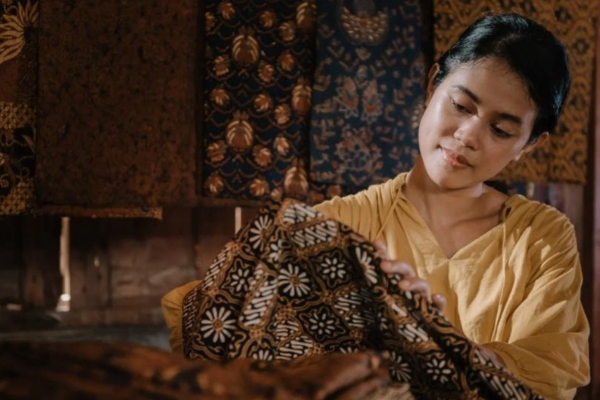In recent years, the fashion industry has seen a significant shift towards sustainability, with more brands and consumers embracing eco-friendly practices. Central to this movement is the adoption of plant-based fabrics, which offer a sustainable alternative to conventional materials. This blog will delve into the world of plant-based fabrics, exploring what they are, their types, benefits, and why they are crucial in the push for sustainable fashion in India.
What Are Plant-Based Fabrics?
Plant-based fabrics are textiles made from natural plant fibers, offering an eco-friendly alternative to synthetic materials like polyester and nylon. These fabrics are derived from various plants, including organic cotton, hemp, flax (linen), bamboo, and even some lesser-known sources like banana, pineapple, and soy. Unlike synthetic fabrics, which are made from petrochemicals and contribute to pollution, plant-based fabrics are biodegradable and have a significantly lower environmental impact.
Types of Plant-Based Fabrics
Plant-based fabrics come in various forms, each with unique properties and uses. Here are some of the most common types:
- Cotton: One of the most common plant-based fibers, organic cotton is soft, breathable, and versatile. It’s used in everything from casual wear to home textiles.
- Linen: Made from the flax plant, linen is known for its durability and ability to keep you cool in warm weather. It requires less water and pesticides compared to organic cotton, making it a more eco-friendly option.
- Hemp: Hemp fibers are strong and durable, making them ideal for heavy-duty fabrics. Hemp is also known for its eco-friendliness, as it requires minimal pesticides and water.
- Bamboo: Bamboo fabric is made from the pulp of bamboo plants. It is naturally antibacterial and moisture-wicking, making it a popular choice for activewear and undergarments.
- Tencel (Lyocell): Produced from wood pulp, often sourced from eucalyptus trees, Tencel is known for its silky feel and sustainability.
- Pineapple and Banana Fibers: Also known as Piñatex and Banana fabric, these innovative textiles are made from the fibers of pineapple leaves and banana stems, respectively. They offer a sustainable alternative to leather and other synthetic materials.
- Khadi: A hand-spun and handwoven fabric made from cotton, Khadi is a symbol of sustainability and self-reliance.It’s highly breathable, durable, and eco-friendly, reflecting a commitment to slow fashion.
How Plant-Based Fabrics Are Made
The production process of plant-based fabrics involves several steps, from harvesting the raw plant material to spinning it into yarn and weaving it into fabric. The process varies depending on the plant source:
- Harvesting: Plants are harvested at the right time to ensure the quality of the fibers.
- Processing: The plant material is processed to extract the fibers. This may involve retting, where the plant material is soaked to break down the pectins holding the fibers together.
- Spinning: The extracted fibers are spun into yarn.
- Weaving/Knitting: The yarn is then woven or knitted into fabric.
- Finishing: The fabric undergoes various finishing processes, such as dyeing and treating, to enhance its properties.
Benefits of Plant-Based Fabrics
Plant-based fabrics offer numerous benefits, making them a preferred choice for eco-conscious consumers:
- Sustainability: These fabrics are biodegradable, reducing waste and environmental pollution.
- Eco-Friendly: These fabrics are biodegradable and often produced with fewer chemicals.
- Renewability: Plant-based fibers are sourced from renewable resources, unlike synthetic fibers derived from non-renewable petroleum.
- Lower Carbon Footprint: The production of plant-based fabrics generally requires less energy and water compared to synthetic alternatives.
- Comfort: Many plant-based fabrics are breathable and comfortable, making them ideal for clothing.
Plant-Based Fabrics in Fashion
Plant-based fabrics are increasingly being used in the fashion industry as designers and brands shift towards more sustainable practices. Sustainable fashion in India is gaining traction, with many designers exploring innovative ways to incorporate these fabrics into their collections. This shift reflects a growing awareness of the environmental impact of fashion and a desire to support more sustainable practices.
Care and Maintenance of Plant-Based Fabrics
Proper care and maintenance of plant-based fabrics are essential to prolong their lifespan:
- Washing: Use cold water and gentle detergents to wash plant-based fabrics.
- Drying: Air-dry these fabrics to prevent shrinkage and extend their life.
- Storage: Store plant-based fabrics in a cool, dry place to prevent mold and mildew.
The Environmental Impact of Plant-Based Fabrics
Plant-based fabrics have a significantly lower environmental impact compared to synthetic materials. They are biodegradable, meaning they break down naturally without leaving harmful residues. Additionally, many plant-based fabrics, such as organic cotton and hemp, are grown without the use of harmful pesticides and require less water, making them more sustainable.
The Future of Plant-Based Fabrics
The future of plant-based fabrics looks promising, with advancements in technology leading to the development of new, innovative materials. As the demand for sustainable fashion in India continues to grow, we can expect to see more brands and consumers opting for plant-based fabrics. This shift is not only beneficial for the environment but also supports sustainable fabric suppliers and manufacturers in India.
Eco-Friendly Plant-Based Fabrics: No Microplastic Pollution, Only Sustainability
Plant-based fabrics, crafted from natural fibers like cotton, linen, and hemp, offer an eco-friendly alternative to synthetic textiles. Unlike synthetic materials that shed harmful microplastics into the air and water during wear and washing, plant-based fabrics are biodegradable and do not contribute to microplastic pollution. Their sustainable nature makes them a preferred choice for environmentally conscious fashion, aligning with a growing demand for eco-friendly and sustainable clothing options.
Sustainable Fabric Suppliers and Manufacturers in India
India is home to many sustainable fabric suppliers and manufacturers dedicated to producing eco-friendly textiles. These companies are at the forefront of the movement, offering a wide range of plant-based fabrics that cater to the growing demand for sustainable fashion in India.
- Sustainable Fashion in India: As more consumers become aware of the environmental impact of their choices, the demand for sustainable fashion in India continues to rise.
- Sustainable Fabric Suppliers in India: Many suppliers are now focusing on organic and plant-based fabrics, contributing to the growth of sustainable fashion.
- Sustainable Fabric Manufacturers in India: Manufacturers in India are adopting eco-friendly practices, from sourcing raw materials to producing high-quality, sustainable fabrics.

